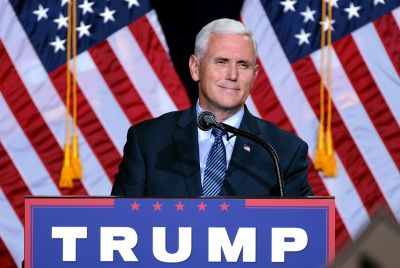Prosecutors say Conrad Black's defense failed
Prosecutors trying to seal their case on Tuesday against former media baron Conrad Black and his associates told jurors about to decide their fate that defense lawyers failed to refute the core fraud charges against the four men.
Instead they cobbled together a defense, taking a phrase from a memo here and a sentence from an e-mail there, said lead prosecutor Eric Sussman, but never taking on the accusations head-on.
Ultimately, he said, the question is: Why were these men getting that money?
Referring to the defense team of eight lawyers, he said, Not a single one faced the issue head-on. Why were these men allowed to take money and then lie about it?
Sussman's comments came in a government rebuttal after the defense completed its final arguments. The jury in the federal courtroom of Judge Amy St. Eve was likely to get the case later Tuesday or on Wednesday after nearly 15 weeks of trial and about 50 witnesses.
But before Sussman took the floor, the final defense argument said the directors who oversaw Black's former publishing empire at Hollinger International Inc. approved everything that was put in front of them, including millions of dollars prosecutors claim was stolen.
Where's the crime? asked Ron Safer, concluding his argument for Mark Kipnis, a former lawyer for Hollinger International.
The company's audit committee acting for the board approved everything put in front of them, Safer said. Nobody pulled the wool over their eyes ... this whole case doesn't make sense.
Prosecutors said they would conclude their rebuttal argument on Wednesday, making it likely the judge would hand the case over to the jury later in the day.
A HOST OF CHARGES
Black and three other former Hollinger executives are accused of pilfering $60 million in so-called non-competition payments that prosecutors contend belonged to the company and its shareholders.
The payments compensated Black and the others for agreeing not to compete against the buyers of hundreds of media properties the company sold to pay down accumulated debt. But prosecutors say the defendants essentially turned the payments into non-taxed bonuses.
Black was ousted as chairman of Hollinger International in 2003 after shareholders questioned the non-compete payment deals. An internal investigation in 2004 concluded that he and other executives oversaw a corporate kleptocracy at Hollinger, once one of the world's largest newspaper publishers.
All four defendants are charged with mail and wire fraud and filing false tax returns.
Black is also charged with obstruction of justice and racketeering, and, along with former Hollinger chief financial officer Jack Boultbee, with additional wire fraud counts for abusing corporate perks.
The 62-year-old, Canadian-born Black, a member of Britain's House of Lords, faces the stiffest penalties if convicted -- decades in prison and the forfeiture of millions of dollars.
During the trial the high-profile audit committee members, including former Illinois Governor James Thompson who chaired that panel for a decade, said they often just skimmed business deals they were asked to approve.
But Thompson said he still had a general sense of what was in the various documents on which he passed judgment.
Hollinger International is now called the Sun-Times Media Group.
© Copyright Thomson Reuters 2024. All rights reserved.





















